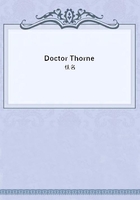
第69章
When Frank Gresham expressed to his father an opinion that Courcy Castle was dull, the squire, as may be remembered, did not pretend to differ from him. To men such as the squire, and such as the squire's son, Courcy Castle was dull. To what class of men it would not be dull the author is not prepared to say; but it may be presumed that the De Courcys found it to their liking, or they would have made it other than it was.
The castle itself was a huge brick pile, built in the days of William III, which, though they were grand for days of the construction of the Constitution, were not very grand for architecture of a more material description. It had, no doubt, a perfect right to be called a castle, as it was entered by a castle-gate which led into a court the porter's lodge for which was built as it were into the wall; there were attached to it also two round, stumpy adjuncts, which were, perhaps properly, called towers, though they did not do much in the way of towering; and, moreover, along one side of the house, over what would otherwise have been the cornice, there ran a castellated parapet, through the assistance of which, the imagination no doubt was intended to supply the muzzles of defiant artillery. But any artillery which would have so presented its muzzle must have been very small, and it may be doubted whether even a bowman could have obtained shelter there.
The grounds about the castle were not very inviting, nor, as grounds, very extensive; though, no doubt, the entire domain was such as suited the importance of so puissant a nobleman as Earl de Courcy. What, indeed, should have been the park was divided out into various large paddocks. The surface was flat and unbroken; and though there were magnificent elm-trees standing in straight lines, like hedgerows, the timber had not that beautiful, wild, scattered look which generally gives the great charm to English scenery.
The town of Courcy--for the place claimed to rank as a town--was in many particulars like the castle. It was built of dingy-red brick--almost more brown than red--and was solid, dull-looking, ugly and comfortable.
It consisted of four streets, which were formed by two roads crossing each other, making at the point of junction a centre for the town. Here stood the Red Lion; had it been called the brown lion, the nomenclature would have been more strictly correct; and here, in the old days of coaching, some life had been wont to stir itself at those house in the day and night when the Freetraders, Tallyhoes, and Royal Mails changed their horses. But now there was a railway station a mile and a half distant, and the moving life of the town of Courcy was confined to the Red Lion omnibus, which seemed to pass its entire time in going up and down between the town and the station, quite unembarrassed by any great weight of passengers.
There were, so said the Courcyites when away from Courcy, excellent shops in the place; but they were not the less accustomed, when at home among themselves, to complain to each other of the vile extortion with which they were treated by their neighbours. The ironmonger, therefore, though he loudly asserted that he could beat Bristol in the quality of his wares in one direction, and undersell Gloucester in another, bought his tea and sugar on the sly in one of those larger towns; and the grocer, on the other hand equally distrusted the pots and pans of home production. Trade, therefore, at Courcy, had not thriven since the railway opened: and, indeed, had any patient inquirer stood at the cross through one entire day, counting customers who entered the neighbouring shops, he might well have wondered that any shops in Courcy could be kept open.
And how changed has been the bustle of that once noisy inn to the present death-like silence of its green courtyard! There, a lame ostler crawls about with the hands thrust into the capacious pockets of his jacket, feeding on memory. That weary pair of omnibus jades, and three sorry posters are all that now grace those stables where horses used to be stalled in close contiguity by the dozen; where twenty grains apiece, abstracted from every feed of oats consumed during the day, would have afforded a daily quart to the lucky pilferer.
Come, my friend, and discourse with me. Let us know what are thy ideas of the inestimable benefits which science has conferred on us in these, our latter days. How dost thou, among others, appreciate railways and the power of steam, telegraphs, telegrams, and our new expresses? But indifferently, you say. 'Time was I've zeed vifteen pair o' 'osses go out of this 'ere yard in vour-and-twenty hour; and now there be'ant vifteen, no, not ten, in vour-and-twenty days! There was the duik-not this 'un; he be'ant no gude; but this 'un's vather-why, when he'd come down the road, the cattle did be a-going, vour days an eend. Here'd be the tooter and the young gen'lmen, and the governess and the young leddies, and then the servants-they'd be al'ays the grandest folk of all--and then the duik and doochess--Lord love 'ee, zur; the money did fly in them days! But now--' and the feeling of scorn and contempt which the lame ostler was enabled by his native talent to throw into the word 'now', was quite as eloquent against the power of steam as anything that has been spoken at dinners, or written in pamphlets by the keenest admirers of latter-day lights.